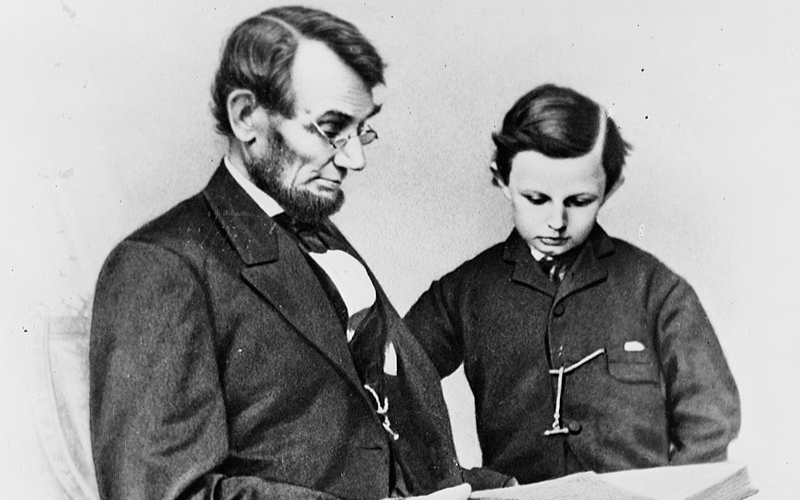The story of Abraham Lincoln from humble beginnings to president is one of resilience, determination, and the unyielding pursuit of greatness. Born into a humble family in Hardin County, Kentucky, in 1809, Lincoln’s beginnings were far from what one would expect of a future president. His early life as a rail splitter—laboring with an axe to create fence posts and clear land—seemed to set a course for a life of manual labor rather than political leadership. However, Lincoln’s journey from these modest roots to the White House demonstrates his extraordinary character and unshakeable resolve.
Early Life: The Humble Beginnings
Lincoln’s childhood was marked by hardship. His family moved frequently, searching for better opportunities. His formal education amounted to less than a year, yet he possessed an insatiable thirst for knowledge. He would walk miles to borrow books, devouring everything from the classics to the law. This self-education laid the foundation for his future success.
Despite his challenged upbringing, Lincoln became known for his storytelling abilities and quick humor, qualities that would serve him well in his later political career. His early years instilled in him a deep empathy for the struggles of others, shaping his views on equality and justice.
The Path to Politics
Lincoln’s political journey began in 1832 when he ran for the Illinois State Legislature. Although he lost that election, he did not give up. He continued to engage in local politics, gaining a reputation for his public speaking skills and his ability to connect with the common man. In 1834, he was finally elected to the state legislature, marking the beginning of his political ascent.
By 1846, Lincoln had shifted his focus to national politics, successfully winning a seat in the U.S. House of Representatives. His time in Congress was brief, but he used it to speak out against the Mexican-American War and advocate for the abolition of slavery. These stances would define his political identity and lay the groundwork for his future campaigns.
The Rise of the Republican Party
The political landscape of the 1850s was tumultuous, with slavery at the forefront of national debate. Lincoln emerged as a key figure in the newly formed Republican Party, which was founded in 1854 with the primary goal of opposing the expansion of slavery into the territories. His eloquent speeches and unwavering principles caught the attention of many, and he quickly became a prominent voice for the party.
In 1858, Lincoln faced off against Senator Stephen A. Douglas in a series of debates that would solidify his reputation as a formidable politician. Although Lincoln lost the election, the debates showcased his remarkable ability to articulate his views on slavery and democracy, earning him national recognition.
The Presidential Campaign of 1860
By 1860, Lincoln was ready for the ultimate challenge: the presidency. Running against a divided Democratic Party, he campaigned on a platform that promised to preserve the Union and halt the spread of slavery. Despite being viewed as an underdog, his message resonated with many Americans who were disillusioned by political corruption and the threat of civil war.
When Lincoln was elected as the 16th president of the United States, he faced a nation on the brink of collapse. Southern states seceded from the Union, and the Civil War loomed on the horizon. His leadership would be tested in ways he could never have imagined.
A Humble Leader
The Emancipation Proclamation, issued in 1863, was a landmark decision that changed the course of history. Lincoln’s ability to navigate the tumultuous waters of war, while maintaining his moral compass, defined his legacy.
He was not just a rail splitter who became president; he was a visionary leader who inspired a nation to rise above its deepest divisions. Lincoln’s story is a reminder that greatness often emerges from the most unlikely places. His journey is an enduring testament to the power of perseverance, intellect, and compassion.
Don’t forget to tune in…
If you’ve enjoyed this article, there are also articles on George Washington and the 12 presidents of the United States BEFORE Washington in this week’s blog podcast.
You can now tune in to the full audio version of this week’s blog via the Bell’s Books and Blog Podcast here Bells Books Blog Podcast, or it is now available on Amazon Music/Audible, Apple Podcasts, Castbox, Deezer, iHeart Radio, JioSaavn, Podcast Addict, Podchaser, Spotify, and Spreaker.
Thank you for joining me in this week’s exploration of historical myths, truths and forgotten leaders! The past can’t keep her secrets for long; it whispers of stories just waiting to be uncovered.
I encourage you to sign up for my weekly blog. When you do so you will get a free copy of Yesteryear’s Ruin, the prequel to my new Case 47 series.
Until next time, keep your curiosity alive and your imagination ignited— and as always, keep the past alive!





 “Yesteryear’s Ruin” captures the essence of human resilience in the face of unimaginable loss. Through a narrative that weaves together love, despair, and the quest for redemption, this historical psychological thriller invites readers into a world where the past is not merely a memory, but a realm that may hold the key to our deepest desires and darkest fears.
“Yesteryear’s Ruin” captures the essence of human resilience in the face of unimaginable loss. Through a narrative that weaves together love, despair, and the quest for redemption, this historical psychological thriller invites readers into a world where the past is not merely a memory, but a realm that may hold the key to our deepest desires and darkest fears.